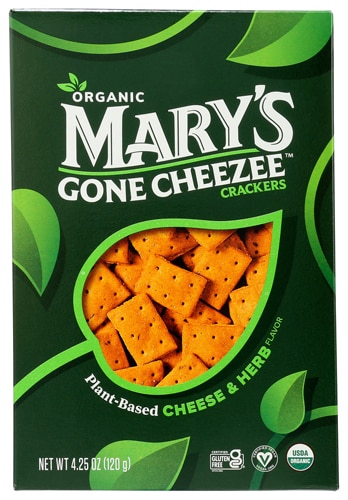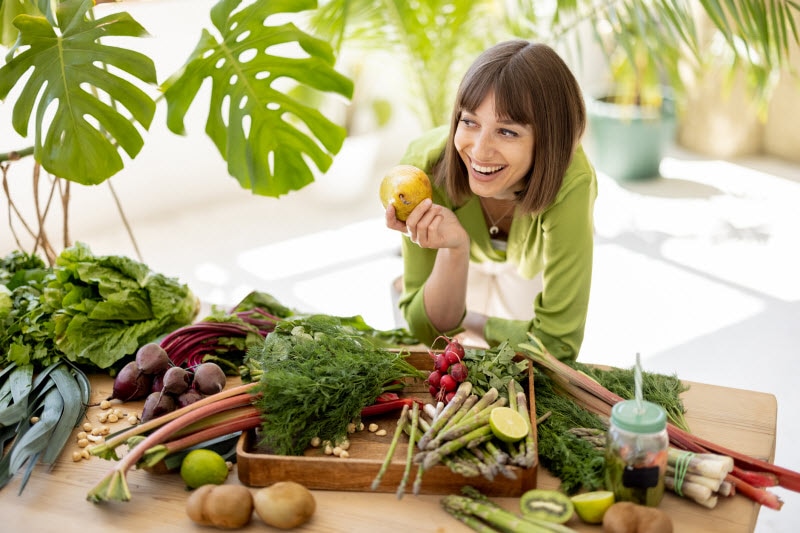[vc_row][vc_column][vc_column_text]So, you’re not sure you want to go whole hog when it comes to eliminating meat and dairy from your diet. That’s understandable. Taking the big leap into a fully vegetarian or vegan lifestyle can be intimidating.
Fortunately, cutting back dramatically, but not entirely, on meat and dairy consumption can do wonders for your health — and the environment.
Plant based diet benefits for the environment
A study published recently in the journal Nature Communications estimated that if 50 percent of beef, chicken, pork and milk products were substituted for plant-based products, the net reduction of forest and natural land would almost stop by 2050 and greenhouse gas emissions from agriculture and other land uses would decline 31% compared with 2020.
“While beef replacement provides the largest [environmental] impacts, substituting multiple products is synergistic,” says the study.
Other 2050 projections based on the study’s animal-for-plant food swap include:
- The global area dedicated to agriculture would fall 12 percent compared with 2020.
- Global water use would decrease by 10%.
- Global undernourishment would drop to 3.6% from 3.8%.
Researchers determined China would benefit most from the outlined agricultural changes, while Sub-Saharan Africa and South America would gain the most from the environmental changes.
“Understanding the impacts of dietary shifts expands our arsenal of options for reducing greenhouse gas emissions and protecting biodiversity,” wrote study co-author Marta Kozicka, a research scholar at the International Institute for Applied Systems Analysis.
The environmental case against beef, chicken, pork and milk
To arrive at their findings, researchers developed plant-based “recipes” for beef, chicken, pork and milk.
“The recipes were designed to be nutritionally equivalent to the original animal-derived products and realistic for existing food manufacturing capabilities and globally available ingredients,” Kozicka wrote.
Why these specific types of food?
A 2013 report from the United Nations’ Food and Agriculture Organization found that beef and cattle-milk production accounted for 41% and 20%, respectively, of the greenhouse gas emissions generated in the livestock sector. Meanwhile, meat from pigs contributed 9% of the sector’s greenhouse gas emissions, with poultry meat and eggs representing 8%.
According to CarbonBrief.org, switching to a vegan diet from a largely meat-based diet would do the most to decrease greenhouse gas emissions around the world, followed by a vegetarian diet and a flexitarian diet.
Can plant-based meat and dairy alternatives come to the rescue?
Despite accounting for less than one-fifth of the global food supply, animal-derived foods are responsible for most of the harm to land use, water use, biodiversity and greenhouse gas emissions in the global food chain, according to the Nature Communications study.
Still, global consumption of animal-derived foods keeps growing, the study says.
High-income nations, where animal-derived foods are most common, have achieved success with encouraging plant-based diets. But the fact that vegans make up only about 2% to 3% of the population in highly developed Western countries suggests a global move away from animal-based diets “will be challenging and may require a range of technological and policy interventions,” according to the study.
One of these technological interventions is the recent rollout of plant-based alternatives to meat and dairy products. Although these alternatives are gaining traction, it’s estimated that per capita consumption of animal-derived foods will actually rise between 2020 and 2050, with chicken (38%) and milk (24%) representing the most global growth, says the study.
Unfortunately, plant-based alternatives might not deliver the same nutritional punch as their animal-based counterparts do.
A study published in 2023 by the journal Food Research International indicated that compared with processed or unprocessed animal foods, plant-based alternatives contained significantly higher amounts of sugar and salt. Furthermore, plant-based alternatives for fish, seafood and meat had less protein.
What are the health benefits of plant-based diets?
Aside from easing environmental harm, plant-based diets offer a number of benefits for human health. The benefits include a lower risk of:
- Heart attack
- Heart disease
- Obesity
- High cholesterol
- High blood pressure
- Type 2 diabetes
- Cancer
“A well-planned diet of plant-based whole foods incorporating a variety of vegetables, whole grains, nuts and legumes can be one tool to help … address the chronic lifestyle diseases with which many struggle,” according to Missouri Medicine, the journal of the Missouri State Medical Association.[/vc_column_text][/vc_column][/vc_row][vc_row][vc_column][vc_text_separator title="Featured Products" border_width="2"][vc_row_inner equal_height="yes" content_placement="middle" gap="35"][vc_column_inner width="1/3"][vc_single_image image="176263" img_size="full" alignment="center" onclick="custom_link" img_link_target="_blank" css=".vc_custom_1719967729128{padding-right: 7% !important;padding-left: 7% !important;}" link="https://www.vitacost.com/simple-truth-organic-plant-based-egg-replacer"][/vc_column_inner][vc_column_inner width="1/3"][vc_single_image image="176262" img_size="full" alignment="center" onclick="custom_link" img_link_target="_blank" css=".vc_custom_1719967781728{padding-right: 7% !important;padding-left: 7% !important;}" link="https://www.vitacost.com/daiya-dairy-free-deluxe-mac-cheeze"][/vc_column_inner][vc_column_inner width="1/3"][vc_single_image image="155612" img_size="full" alignment="center" onclick="custom_link" img_link_target="_blank" css=".vc_custom_1635274203725{padding-right: 7% !important;padding-left: 7% !important;}" link="#"][/vc_column_inner][/vc_row_inner][/vc_column][/vc_row]




